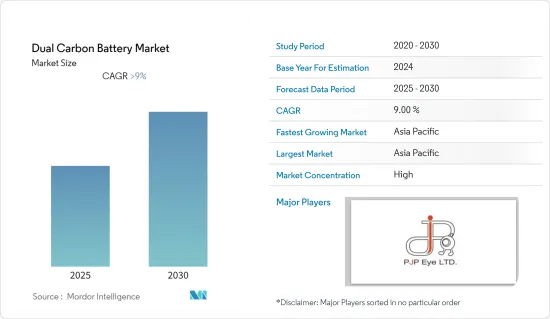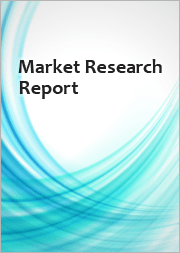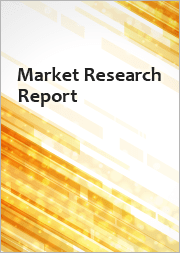
|
시장보고서
상품코드
1685813
듀얼 카본 배터리 시장(2025-2030년) : 시장 점유율 분석, 산업 동향, 통계 및 성장 예측Dual Carbon Battery - Market Share Analysis, Industry Trends & Statistics, Growth Forecasts (2025 - 2030) |
||||||
듀얼 카본 배터리 시장은 예측 기간 동안 CAGR 9% 이상을 기록할 전망입니다.

자동차 산업은 여전히 배터리의 최대 최종 사용자 중 하나이며 자동차 시장의 성장은 듀얼 카본 배터리 시장을 뒷받침할 가능성이 높기 때문에 자동차 배터리 분야는 예측 기간 동안 큰 수요가 예상됩니다.
전기자동차(EV) 시장의 성장은 내연기관차(ICE)를 대체하는 청정 에너지 옵션을 제공하고 연료 연소로 인한 대기오염의 감소와 소음의 억제에 도움이 되므로 미래에 큰 기회를 창출할 수 있습니다.
아시아태평양이 시장을 독점할 것으로 예상되며, 수요의 대부분은 인도, 중국, 일본 등의 나라에서 발생합니다.
듀얼 카본 배터리 시장 동향
자동차 부문에서 상당한 수요가 예상됨
듀얼 카본 배터리는 비용, 충전 시간 및 환경에 미치는 영향을 크게 줄이는 반면 주행 시간과 전반적인 수명을 크게 연장할 것으로 예상됩니다.
전기차(EV)로 인한 하이엔드 배터리 수요가 증가하고 있는 것도 듀얼 카본 배터리 시장을 견인하는 큰 요인입니다.
듀얼 카본 배터리는 자동차 배터리 분야에 혁명을 가져올 것으로 기대되고 있지만, 이러한 배터리의 생산율이 낮고 리튬 이온 배터리 등의 대체품이 시장을 석권하고 있기 때문에 향후 수년간은 시장의 성장이 둔화할 것으로 예상되고 있습니다.
Power Japan Plus(PJP)와 같은 기업들은 듀얼 카본 배터리를 의료기기 분야와 인공위성에 도입하기 위해 노력하고 있으며 궁극적으로는 자동차 산업에 진출할 계획입니다.
이와 같이 자동차 분야는 예측 기간 동안 큰 성장을 이룰 가능성이 높습니다.
아시아태평양은 큰 성장으로
아시아태평양의 전동화 추세가 활발해지면서 아시아태평양 배터리 시장은 향후 10년간 전반적으로 크게 성장할 것으로 예상됩니다.
이 지역의 배터리 시장은 주로 인도, 중국, 일본, 한국 등의 국가에서 전자기기 제조, 발전, 통신 및 정보산업의 발전이 견인하고 있습니다.
인도와 같은 신흥 국가들은 송전망 인프라가 불안정하기 때문에 주로 농촌에서 빈번히 정전이나 단전이 발생합니다. 또한 각국 정부는 자국의 에너지 수요를 충족시키기 위해 에너지 저장 프로젝트에 자금을 제공하는 이니셔티브를 시행하고 있습니다.
그러나, 단기적인 시나리오로는 이 지역은 듀얼 카본 배터리의 제조 공정에서 사용되는 주요 원료인 흑연 카본의 가격 상승에 의해 난관에 봉착할 가능성이 높습니다.
이 지역에서는 듀얼 카본 배터리 기술에 대한 연구도 진행되고 있습니다.
따라서 위의 요인을 바탕으로 아시아태평양은 예측 기간 동안 큰 성장을 이룰 것으로 예상됩니다.
듀얼 카본 배터리 산업 개요
듀얼 카본 배터리 시장은 통합되어 있으며 주요 기업은 PJP Eye Ltd.입니다.
기타 혜택
- 엑셀 형식 시장 예측(ME) 시트
- 3개월간의 애널리스트 지원
목차
제1장 서론
- 조사 범위
- 시장의 정의
- 조사의 전제
제2장 조사 방법
제3장 주요 요약
제4장 시장 개요
- 소개
- 시장 규모 및 수요 예측(-2027년)
- 비교 분석 : 듀얼 카본 배터리와 기타 배터리 기술
- 최근 동향과 개발
- 정부의 규제와 정책
- 시장 역학
- 성장 촉진요인
- 억제요인
- 공급망 분석
- Porter's Five Forces 분석
- 공급자의 협상력
- 소비자의 협상력
- 신규 참가업체의 위협
- 대체품의 위협
- 경쟁 기업간 경쟁 관계의 강도
제5장 시장 세분화
- 용도
- 자동차용 전지
- 산업용 전지
- 휴대용 전지
- 기타 용도
- 지역
- 북미
- 아시아태평양
- 유럽
- 남미
- 중동 및 아프리카
제6장 경쟁 구도
- M&A, 합작사업, 제휴 및 협정
- 주요 기업의 전략
- 기업 프로파일
- PJP Eye Ltd
제7장 시장 기회와 미래 동향
CSM 25.04.22The Dual Carbon Battery Market is expected to register a CAGR of greater than 9% during the forecast period.

The automotive battery segment is expected to witness significant demand over the forecast period, as the automotive industry remains one of the largest end users of batteries, along with the growing market for vehicles, which, in turn, is likely to boost the dual carbon battery market.
Growth in the electric vehicles (EVs) market can create immense opportunities in the future as they offer clean alternatives to vehicles with internal combustion engines (ICE), which helps reduce air pollution resulting from fuel combustion and limit noise.
Asia-Pacific is expected to dominate the market, with the majority of the demand coming from countries like India, China, and Japan.
Dual Carbon Battery Market Trends
The Automotive Segment is Expected to Witness Significant Demand
Dual carbon batteries are expected to significantly extend the length of charge and the overall lifetime while greatly reducing cost, charge times, and environmental impact. Moreover, the high energy density of these batteries is expected to increase the demand in the automotive industry in the coming years.
The increasing demand for high-end batteries from electric vehicles (EVs) is another major factor driving the dual carbon battery market. The manufacturers of these batteries have stated that the batteries could give a modern electric vehicle a range of almost 500 kilometers (300 miles).
Although dual carbon batteries promise to revolutionize the automotive battery segment, the low production rate of these batteries and the dominance of alternatives, such as lithium-ion batteries, in the market are expected to slow down the market growth for the next few years. The dual carbon technology has not yet been deployed on a large scale, and manufacturers are still struggling to penetrate into the automotive sector.
Moreover, companies such as Power Japan Plus (PJP) are planning to introduce their dual carbon batteries to the medical device segment and satellites and eventually into the automotive industry.
Thus, based on the above-mentioned factors, the automotive segment is likely to experience significant growth during the forecast period.
Asia-Pacific is Set to Experience Significant Growth
The Asia-Pacific battery market as a whole is expected to grow significantly over the coming decade due to increased electrification activities in the region. The dual carbon battery has not yet penetrated the market on a significant level.
The battery market in this region is mainly driven by developments in the electronics manufacturing, power generation, communication, and information industries in countries like India, China, Japan, and South Korea.
Developing countries, like India, lack a firm grid infrastructure, which causes power cuts and blackouts frequently, mostly in rural areas. Thus, the lack of grid infrastructure, high demand for steady power, and the need for power backup solutions are expected to drive the demand for industrial dual carbon batteries. Moreover, the governments of various countries have taken initiatives to finance energy storage projects to fulfill the energy requirements in their countries. China and a few South Asian countries are coming up with new business models and associated financing instruments to invest capital in battery energy storage projects.
In a short-term scenario, however, the region is likely to witness challenges from rising prices of graphite carbon, which is a major raw material used in the dual carbon battery manufacturing process. Rising prices of graphite carbon are majorly a result of a sharp cut in the supply of graphite electrodes from China. In the present scenario, the demand for graphite electrodes is significantly higher compared to the supply.
Research on dual carbon battery technology is also underway in the region. For instance, in April 2021, researchers at IIT Hyderabad, India, developed a dual carbon battery that can cut the overall battery cost by as much as 20-25%, along with being environment-friendly. Further research is underway to increase the energy density of the battery.
Therefore, based on the above-mentioned factors, Asia-Pacific is expected to witness significant growth during the forecast period.
Dual Carbon Battery Industry Overview
The dual carbon battery market is consolidated. The key player is PJP Eye Ltd. As of June 30, 2017, Power Japan Plus had transferred all its assets and businesses, including battery manufacturing, to PJP Eye Ltd.
Additional Benefits:
- The market estimate (ME) sheet in Excel format
- 3 months of analyst support
TABLE OF CONTENTS
1 INTRODUCTION
- 1.1 Scope of the Study
- 1.2 Market Definition
- 1.3 Study Assumptions
2 RESEARCH METHODOLOGY
3 EXECUTIVE SUMMARY
4 MARKET OVERVIEW
- 4.1 Introduction
- 4.2 Market Size and Demand Forecast in USD million, till 2027
- 4.3 Comparative Analysis: Dual Carbon Battery Vs Other Battery Technologies
- 4.4 Recent Trends and Developments
- 4.5 Government Policies and Regulations
- 4.6 Market Dynamics
- 4.6.1 Drivers
- 4.6.2 Restraints
- 4.7 Supply Chain Analysis
- 4.8 Porter's Five Forces Analysis
- 4.8.1 Bargaining Power of Suppliers
- 4.8.2 Bargaining Power of Consumers
- 4.8.3 Threat of New Entrants
- 4.8.4 Threat of Substitute Products and Services
- 4.8.5 Intensity of Competitive Rivalry
5 MARKET SEGMENTATION
- 5.1 Application
- 5.1.1 Automotive Batteries
- 5.1.2 Industrial Batteries
- 5.1.3 Portable Batteries
- 5.1.4 Other Applications
- 5.2 Geography
- 5.2.1 North America
- 5.2.2 Asia-Pacific
- 5.2.3 Europe
- 5.2.4 South America
- 5.2.5 Middle-East and Africa
6 COMPETITIVE LANDSCAPE
- 6.1 Mergers and Acquisitions, Joint Ventures, Collaborations, and Agreements
- 6.2 Strategies Adopted by Leading Players
- 6.3 Company Profiles
- 6.3.1 PJP Eye Ltd













